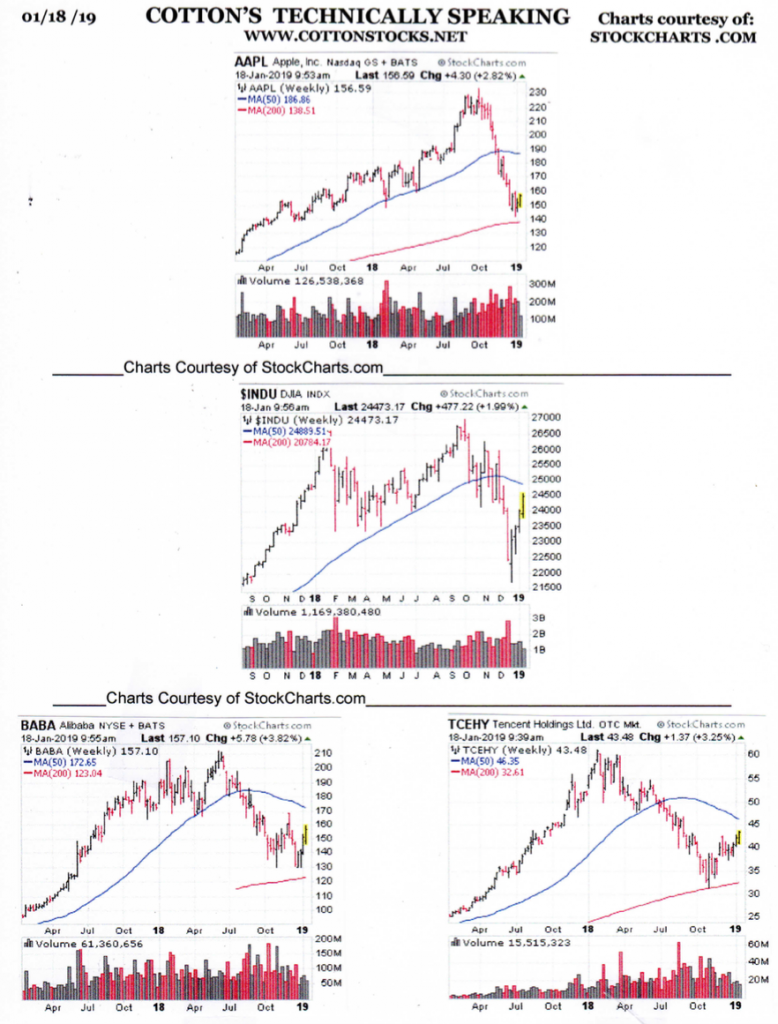This article is written to put the recent large correction in the stock market into perspective. We believe it was just a correction and not the beginning of an extended Bear Market.
If you look at the 2-year stock chart of Apple, Inc. (Symbol AAPL) attached, you can see that it was selling for about $110 a share in December of 2016…and doubled within 2 years to about $230 per share in December of 2018.
That’s a really great 2-year return on your investment. An old, and popular, maxim for stock investors and traders is to “Sell half of your stock when it doubles.” This is a very simple, yet effective rule, which makes you take profits before they disappear, which they have a tendency to do. Greed is what makes you hold on for even higher profits and not sell when logically you should be taking some profits. The greed factor is a powerful emotion that successful traders are able to overcome and keep in check.

Joseph Cotton
On Apple’s 2-year chart, the blue line is the 50-day moving average. When a stock gets too far above the blue line, it is considered to be Overbought, which was the case in September and October of 2018. And when a stock gets too far below the blue line, it is considered to be Oversold, which was the case in late December of 2018.
In October, we advised our readers that “we would be taking profits on stocks selling at the high end of their range, like Apple (AAPL) 224.29, and several other stocks in the same “overbought” category. They all declined except one, Procter & Gamble.
Apple’s stock went from a price of $230 to $140 within only 90 days, which is a huge 39% decline. At that price, it became a Buy, rather than a Sell. Many other individual stocks underwent the same scenario and moved from “Overbought” positions to “Oversold” positions.
And this is what happened to the Dow Jones Industrial Average when a large number of the component stocks moved into Oversold territory….which made the Dow also fall into an “Oversold” position when the panic selling occurred.
On Christmas Eve, we advised our readers that we thought the DOW was in “Oversold” territory and had had good, healthy Panic Selling and that we believed the bottom of the correction would be in the 21,000-21,500 range.
It bottomed at 21,712.52 on the next trading day, December 26th and began a strong rally to close on January 17th at 24,370.
Two Large Cap Chinese Glamour stocks that got into “oversold” territory, and have had large declines within the last 7 months are Tencent (TCEHY) 42.90 which declined 46% from 60 in March of 2018 to 32 in late October, and Alibaba (BABA) 155.97, which declined 38% from 210 in June of 2018 to 130 in December…and are now headed up.

NKY’s Joseph W Cotton is publisher of the market newsletter, Cotton’s Technically Speaking. He is a graduate of Xavier University, a former bank manager and credit analyst, and a registered investment representative. Contact him a cottonstocks@hotmail.com
















